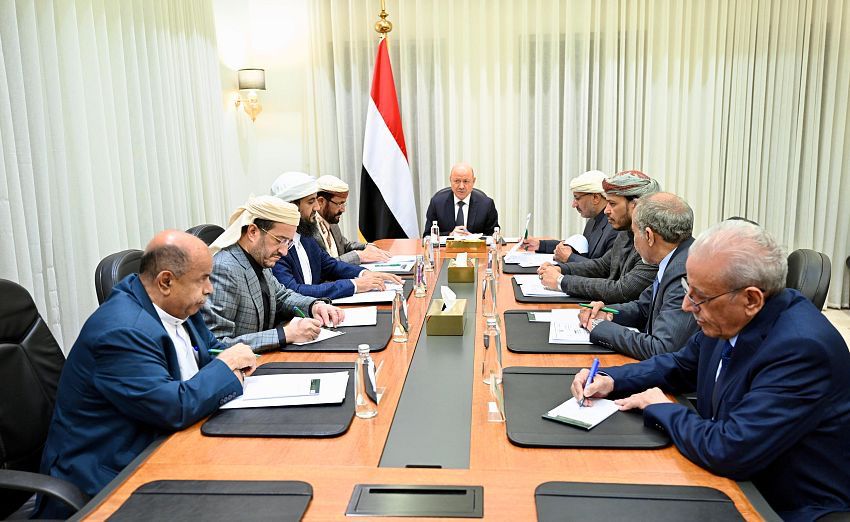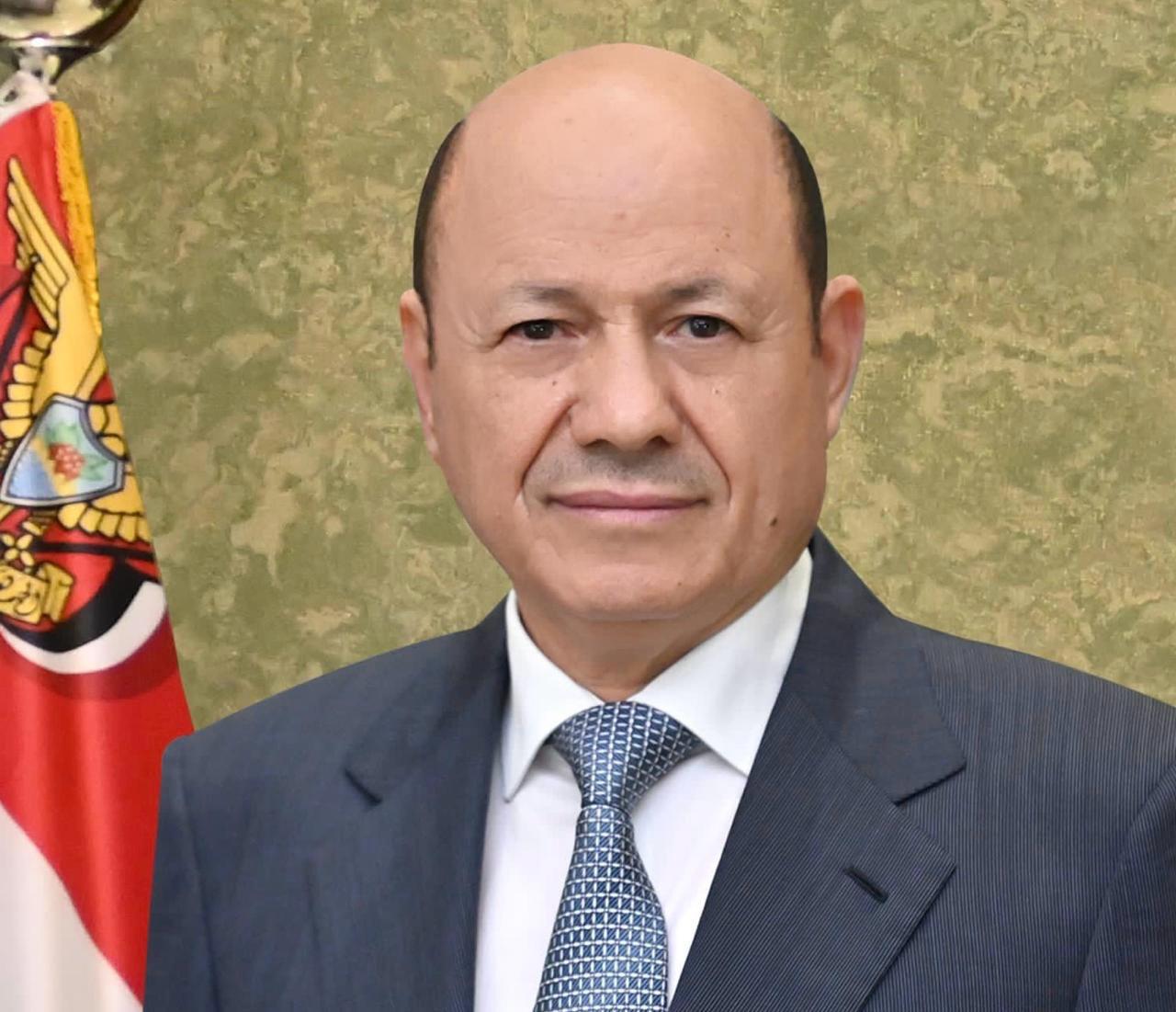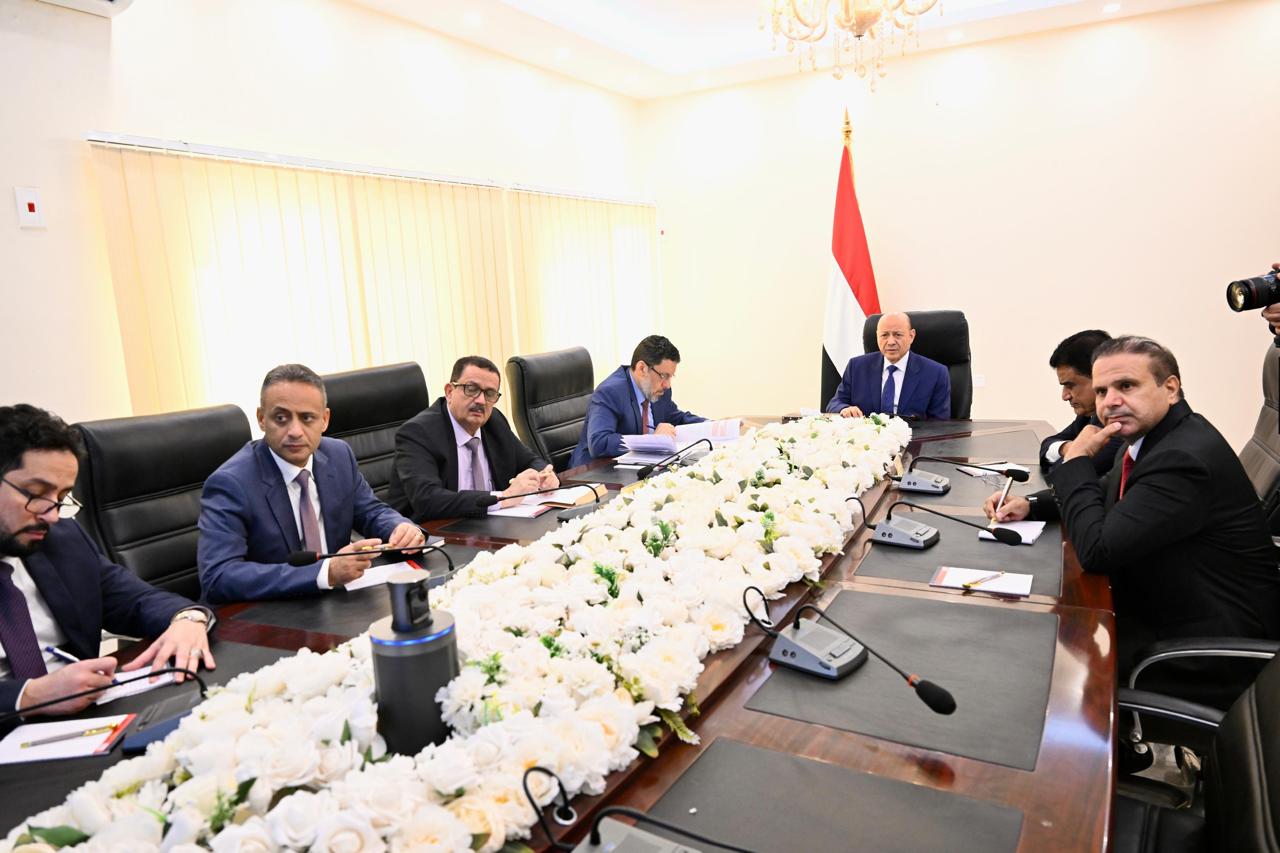
President Al-Alimi Meets with Crisis Management Committee
Aden
His Excellency President Dr. Rashad Mohammed Al-Alimi, President of the Presidential Leadership Council, convened a meeting today, Tuesday, with the Crisis Management Committee for Economic and Humanitarian Affairs at Ma'ashiq Palace in the interim capital, Aden. The meeting was attended by Dr. Ahmed Awad bin Mubarak, the Prime Minister, Chairman of the Committee.
The meeting included Mr. Ahmed Ghaleb Al-Maabqi, the Governor of the Central Bank of Yemen, Mr. Salem bin Bureik, the Minister of Finance, Dr. Shai’a Al-Zindani, the Minister of Foreign Affairs and Expatriates, Dr. Saeed Suleiman Al-Shamasi, the Minister of Oil and Minerals, Mr. Hossam Al-Sharjabi, the Head of the Economic Team, and Captain Nasser Mahmoud Mohammed, the Chairman of the Board of Directors of Yemen Airways.
During the meeting, the Prime Minister and committee members provided a briefing on the current economic situation, financial and monetary indicators, fluctuations in national currency exchange rates, and essential commodity prices, as well as the progress of government reforms. Discussions also covered the necessary measures to enhance the state’s access to its resources and intensify interventions aimed at mitigating the worsening humanitarian crisis exacerbated by attacks on oil facilities and maritime shipping vessels by the Iran-backed terrorist Houthi militia.
Furthermore, the meeting reviewed reports on the activities of the Crisis Management Committee during the previous period, as well as proposed plans to address various entitlements and challenges.
During the meeting, the President of the Leadership Council emphasized the need to take all necessary measures to enhance public financial efficiency, improve monetary policy, and strictly monitor service and essential goods prices.
The President urged the Crisis Management Committee to accelerate sectoral measures to ensure that the state fulfills its critical obligations—primarily the payment of employee salaries and the sustainability of vital services, especially electricity.
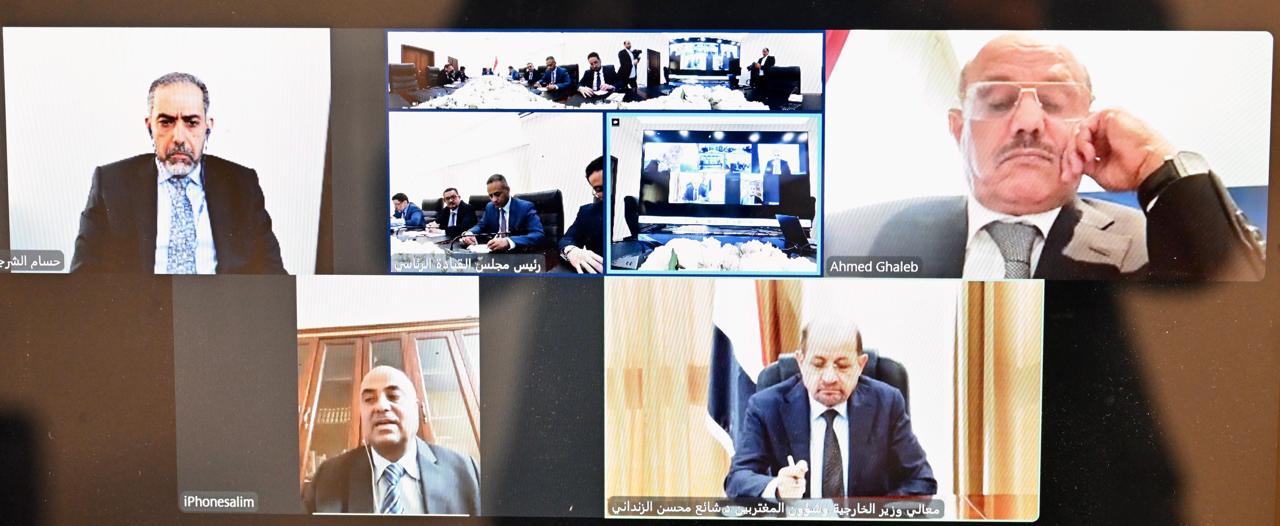
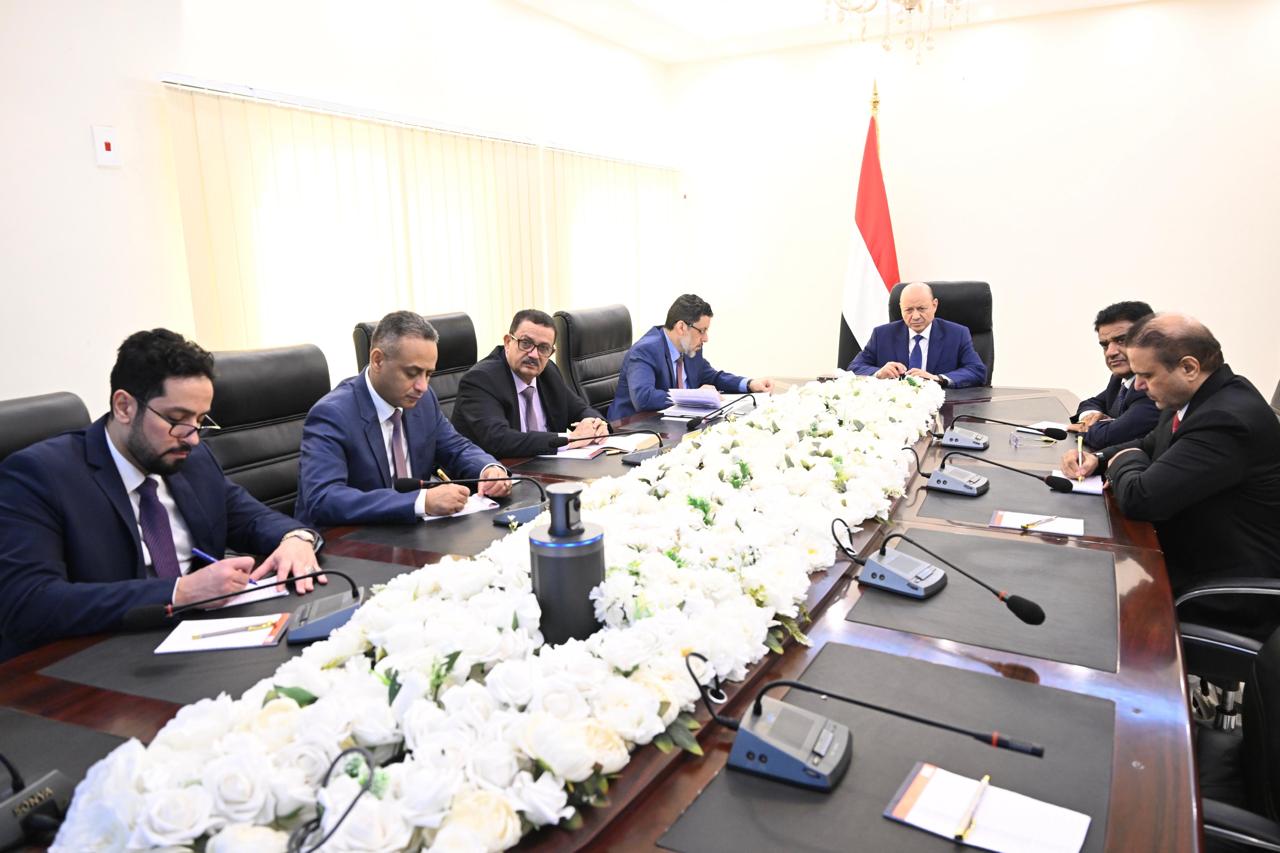
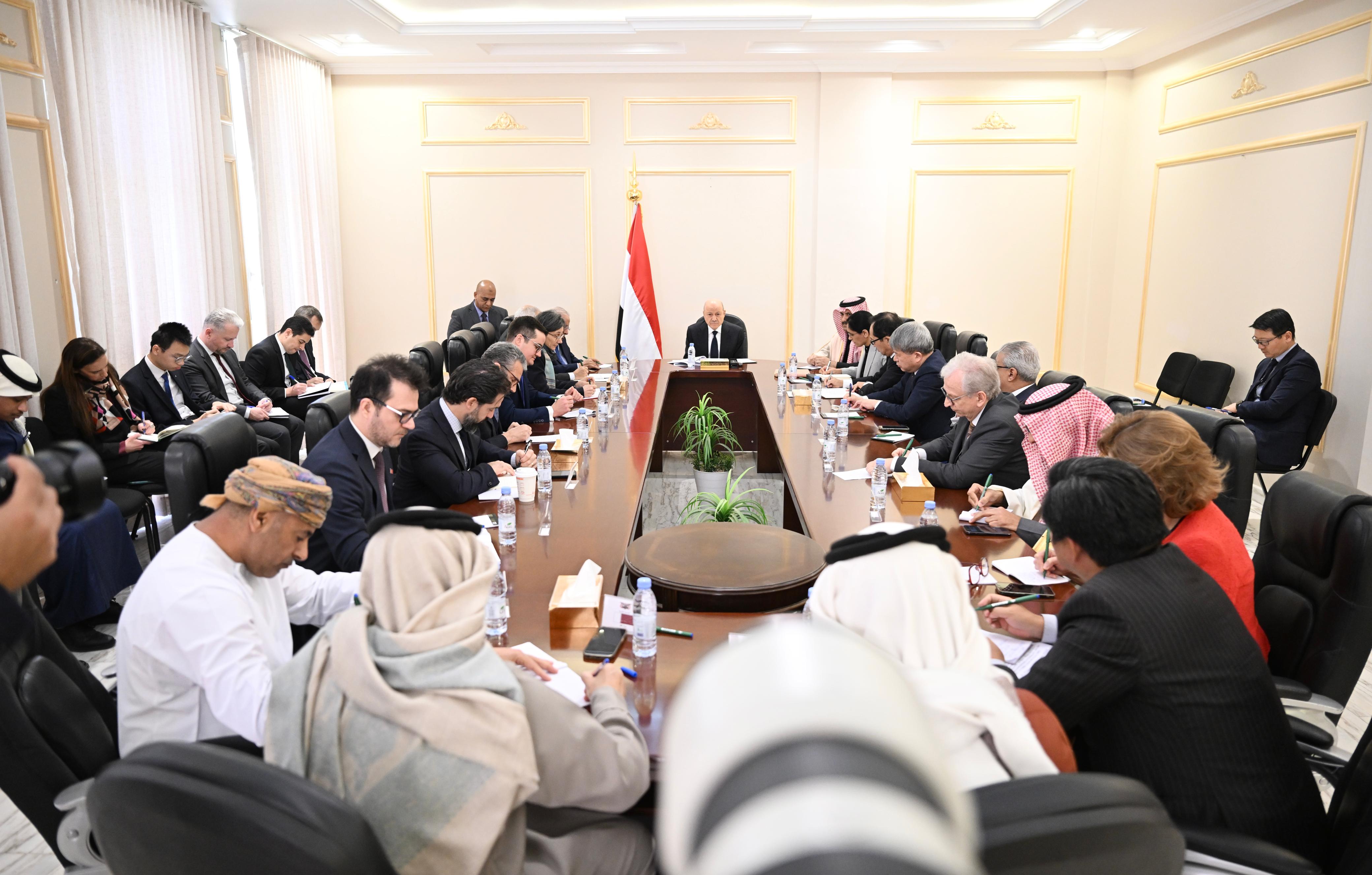
President Al-Alimi: Developments on Ground Are Promising and Refute Claims of a Vacuum and Worst-Case Scenarios
His Excellency President Dr. Rashad Mohammed Al-Alimi, President of the Presidential Leadership Council, said that state institutions are making tangible progress in unifying security and military decision-making

